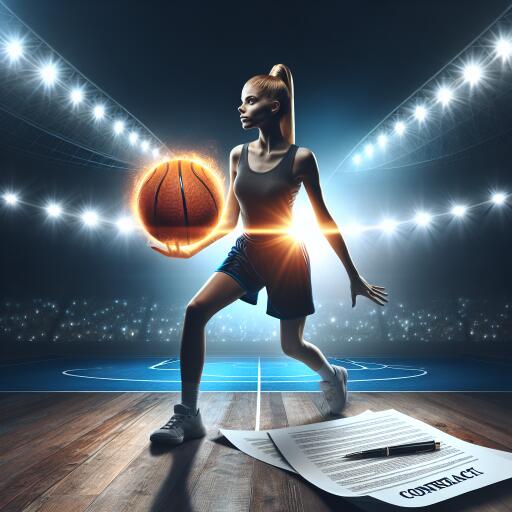Shakeia Taylor: With NIL, Caitlin Clark Could Usher in New Era of WNBA Player Endorsements
When Caitlin Clark visits, it becomes more than just a game; it turns into an event characterized by sold-out arenas, discrete hotel entries, and police escorts. As a key player for the Iowa women’s basketball team, Clark has turned every match into a spectacle, drawing fans nationwide and creating a vibrant atmosphere of black and yellow cheers wherever they play.
Clark’s influence is undeniable. Her presence boosts attendance, shatters records, and incites Beatles-like frenzies. After a game where the Iowa team dominated Northwestern 110-74, Clark reflected on the surreal nature of her popularity. “Every single game, I play and it’s all sold out. So it’s not something you ever take for granted,” she confessed. But perhaps even more remarkable than her on-court prowess is the speculation about her financial future in the sports world.
As a towering figure in women’s basketball, Clark stands on the precipice of a professional career that could redefine the economic landscape for female athletes, especially concerning the WNBA. Though Clark has yet to discuss her WNBA aspirations, preferring to focus on her college career, the conversation around her potential earnings and endorsements is heating up.
Contrary to the belief that transitioning to the WNBA would mean a financial step down due to supposed NIL cutbacks, experts like Noah Henderson of Loyola challenge this notion. Henderson, an authority on NIL, stresses that endorsements for women athletes often dwarf their professional salaries, a trend likely to continue and blossom for stars like Clark.
The economic model of NIL (Name, Image, and Likeness) in college sports, Henderson points out, is misinterpreted by many. It is not a salary but a valuation of what an athlete can earn from endorsements. This misunderstanding fuels inaccurate assumptions about female athletes’ financial trajectories as they turn professional.
Caitlin Clark’s potential in the WNBA, paired with her existing and future endorsements, paints a promising picture. Recent WNBA draftees, such as Aliyah Boston, illustrate that transitioning to the professional league does not end lucrative endorsement deals but rather rebrands them as professional endorsements. Clark’s impressive portfolio, featuring collaborations with major brands including Gatorade and Nike, ensures her marketability will only grow.
The integration of NIL deals within women’s college basketball has elevated the sport’s profile, making stars like Clark household names. As the WNBA prepares to welcome such talent, the possibilities for endorsements and fan engagement seem limitless. With a swelling wave of support for women’s sports and a growing demand for everything from team merchandise to player-specific apparel, players of Clark’s caliber are poised to lead a new era of financial prosperity and recognition in women’s basketball.
As the landscape of endorsements and athlete earnings continues to evolve, Caitlin Clark’s journey from college basketball sensation to professional powerhouse could well signal a turning point, highlighting the lucrative opportunities awaiting women athletes in the modern sports arena.
